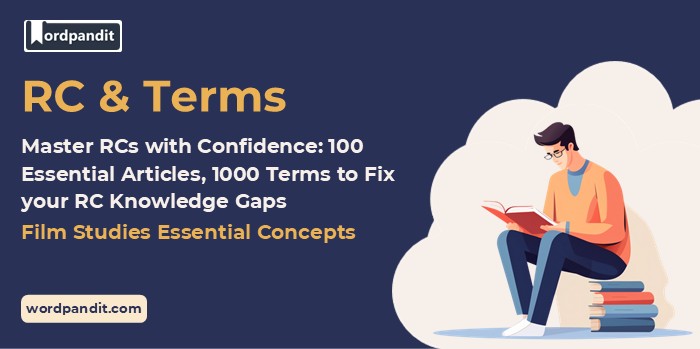🎥 Film Studies: Essential Concepts for Reading Comprehension
Film Studies explores the art, craft, and cultural impact of cinema, making it an essential subject for analyzing complex texts and arguments in Reading Comprehension (RC) passages. By studying Film Studies concepts, readers can better understand narratives, visual storytelling, and the societal messages embedded in films. This knowledge is particularly relevant for RC preparation, as it helps identify central themes, critical perspectives, and layered arguments, which are common in passages related to art, culture, and media.
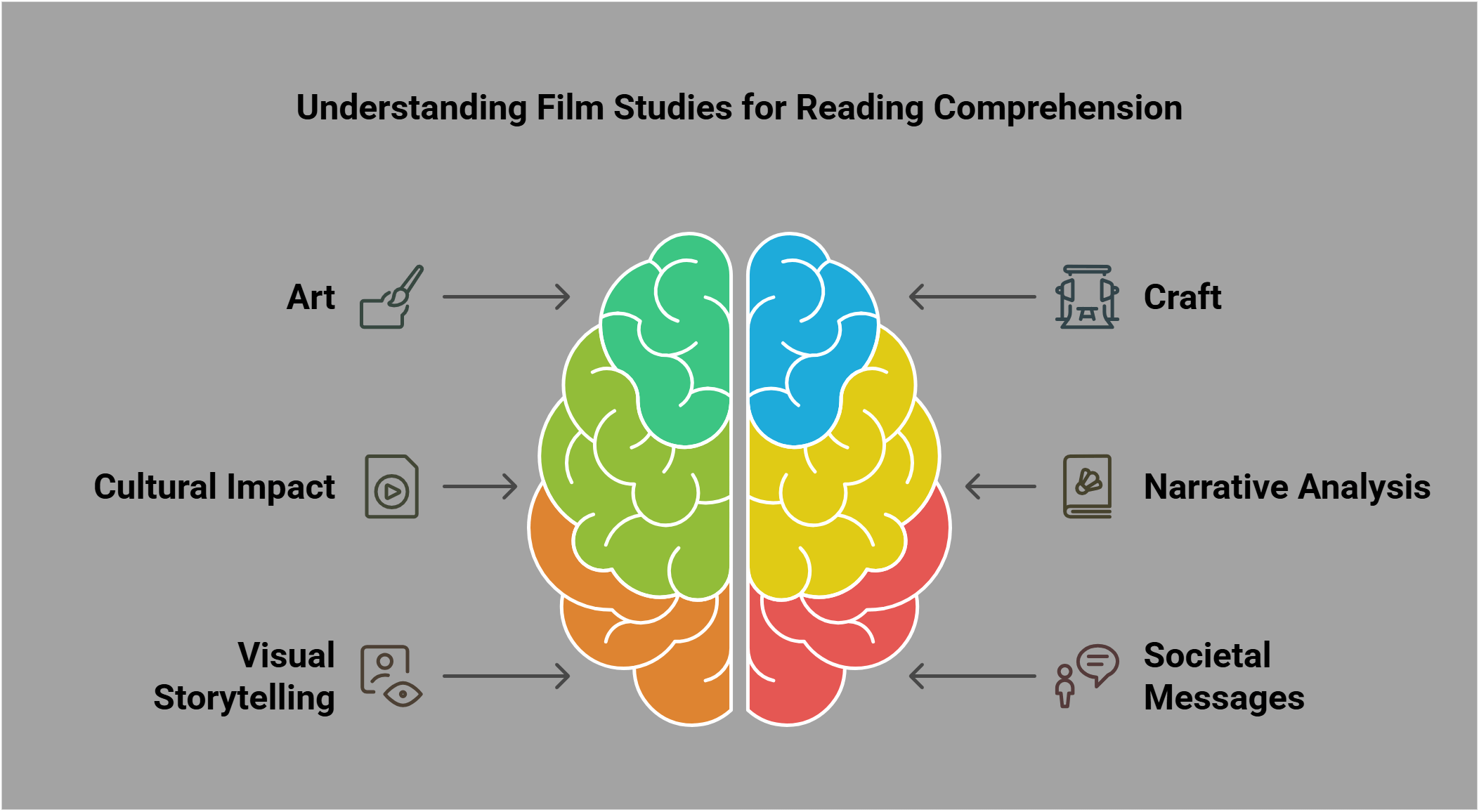
📋 Overview
In this guide, we’ll delve into these key Film Studies-related concepts to strengthen your RC skills:
- Film Theory
- History of Cinema
- Documentary Films
- Film Genres
- Film Criticism
- Cinematography
- Screenwriting
- Film Production
- Film Editing
- Film Festivals
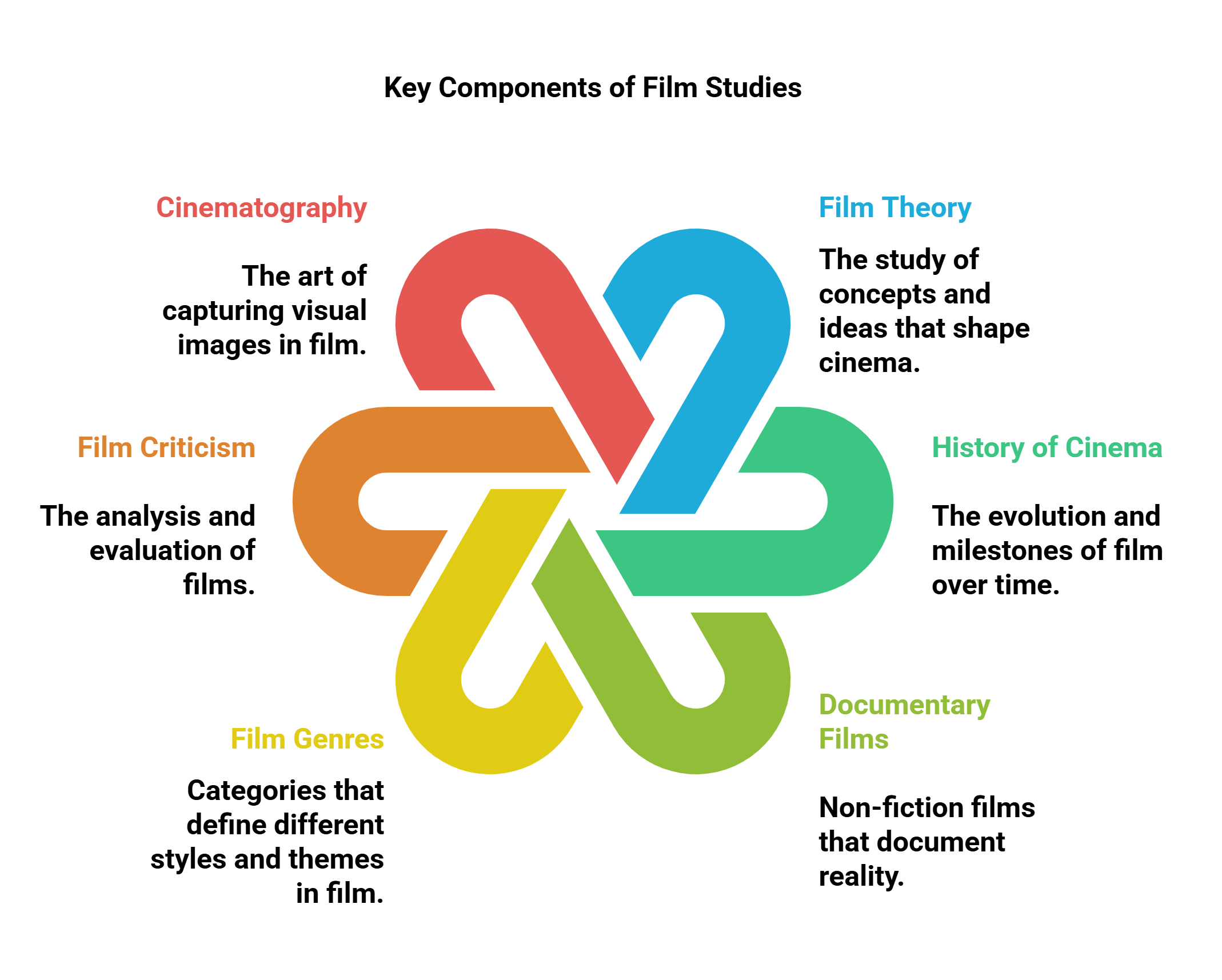
🔍 Detailed Explanations
1. Film Theory
Film Theory examines how films convey meaning and impact audiences. It explores techniques like symbolism, narrative structure, and camera work to analyze a movie’s emotional and intellectual effects. This framework is crucial for understanding RC passages that critique artistic or cultural works.
- Explains how visual elements create meaning.
- Includes theories like Formalism, Realism, and Auteur Theory.
- Investigates the cultural, political, and social influences of films.
- Helps analyze how narratives are constructed.
- Connects with broader discussions in art and literature.
Explained Simply: Imagine your favorite superhero movie. Film Theory is like a treasure map that shows you why certain scenes feel exciting, sad, or inspiring. It’s all about understanding the secret ingredients that make the movie awesome!
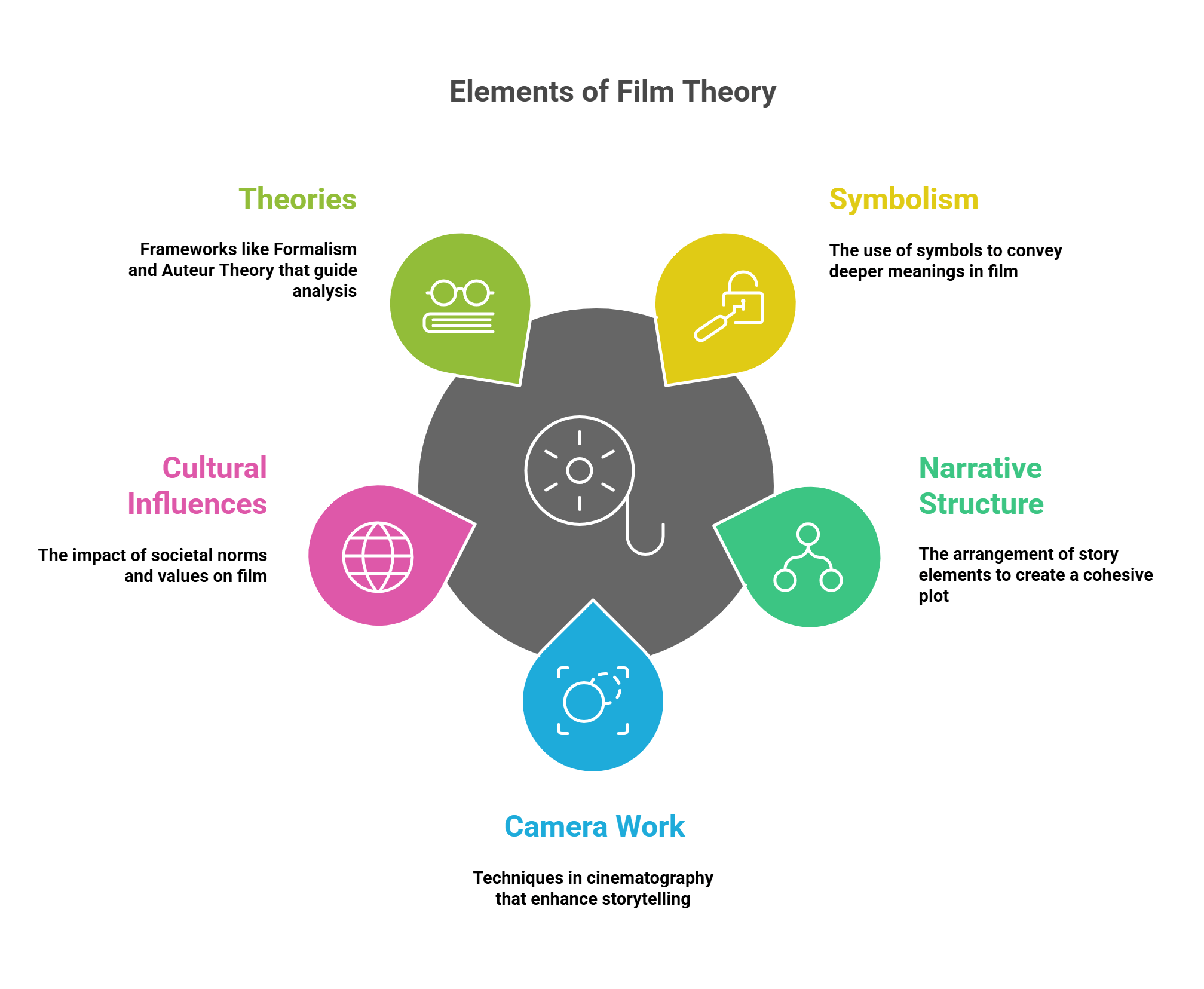
2. History of Cinema
The History of Cinema traces the evolution of filmmaking from the silent film era to modern blockbusters. It provides insights into how technology, culture, and storytelling have shaped movies over time.
- Covers major milestones like the invention of sound and color.
- Highlights influential movements like Italian Neorealism and French New Wave.
- Explores the global expansion of cinema.
- Tracks the rise of iconic directors and actors.
- Links technological innovations with storytelling changes.
Explained Simply: Think of movies as a time machine. The first movies were like flipbooks, and over time, they added sound, color, and special effects. It’s like how your favorite cartoons keep getting cooler with better animation!
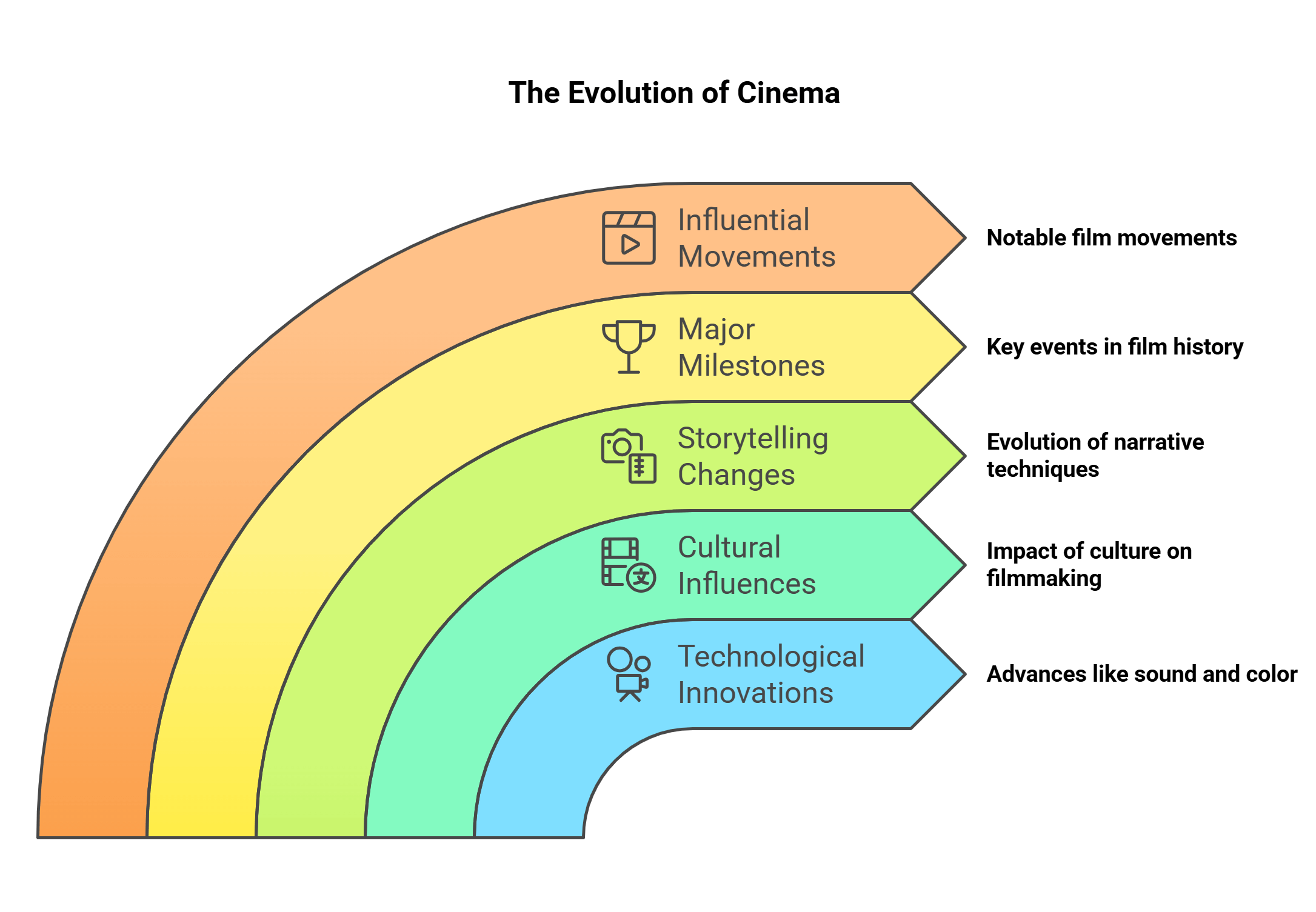
3. Documentary Films
Documentaries tell real-life stories, focusing on education, awareness, or advocacy. They are valuable for RC passages that examine fact-based arguments and ethical dilemmas.
- Captures real events, people, and issues.
- Explores topics like nature, politics, and history.
- Blurs the line between storytelling and journalism.
- Often sparks debates about truth and bias.
- Provides a window into different cultures and perspectives.
Explained Simply: Documentaries are like movies that teach you something cool about the world. It’s like a school lesson, but with awesome videos and real people!
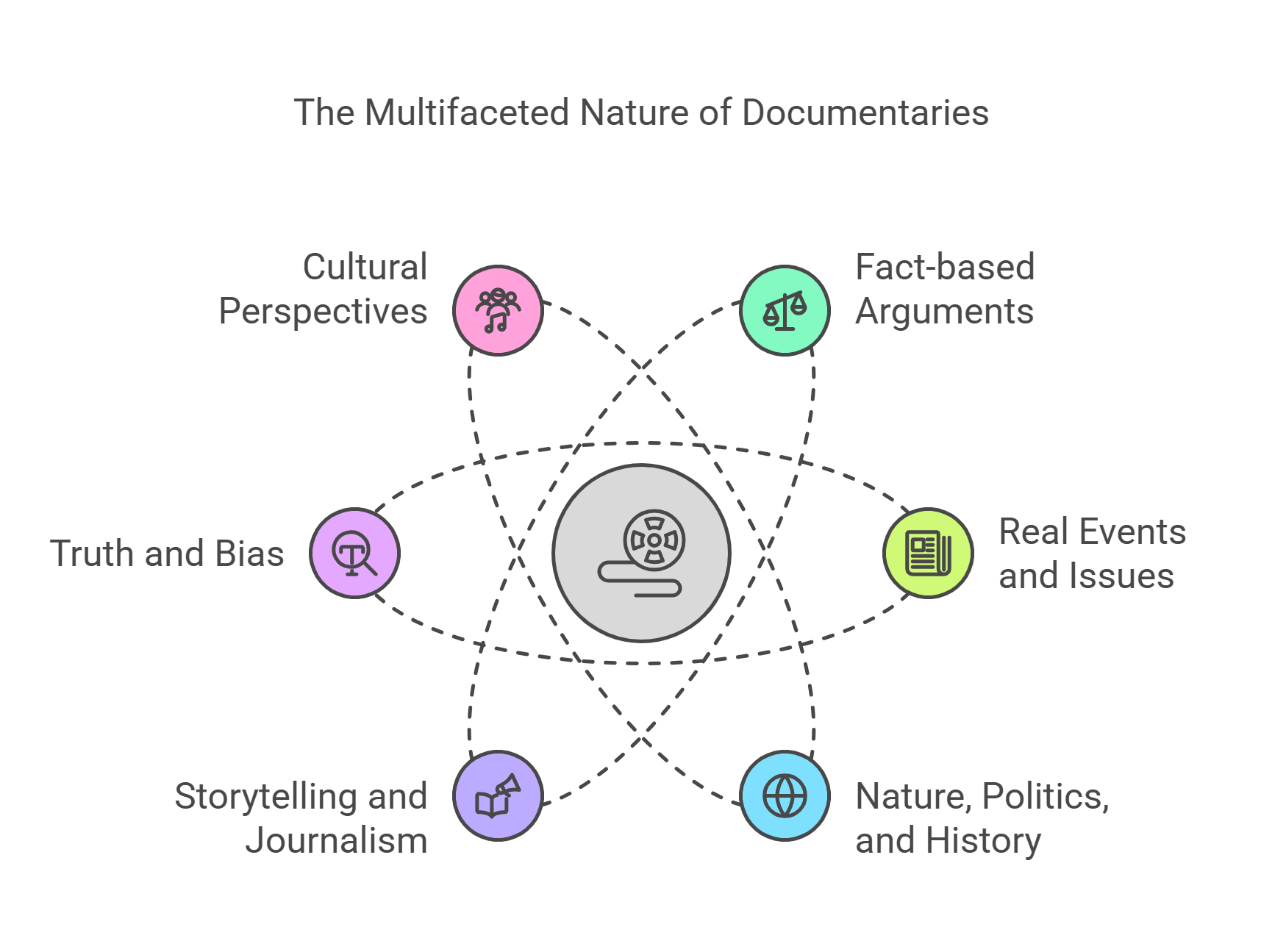
4. Film Genres
Film Genres categorize movies based on shared themes, styles, or narratives. Recognizing genres helps in understanding how certain conventions guide storytelling and audience expectations.
- Common genres include action, drama, comedy, horror, and sci-fi.
- Genres often mix, creating hybrids like romantic comedies or action-thrillers.
- Each genre has specific visual and narrative techniques (e.g., suspense in horror).
- Reflects societal trends and audience preferences over time.
- Aids in analyzing how filmmakers engage with or subvert audience expectations.
Explained Simply: Think of genres like flavors of ice cream. If a movie is chocolate, you expect it to taste sweet and rich, just like how a comedy movie is meant to make you laugh!
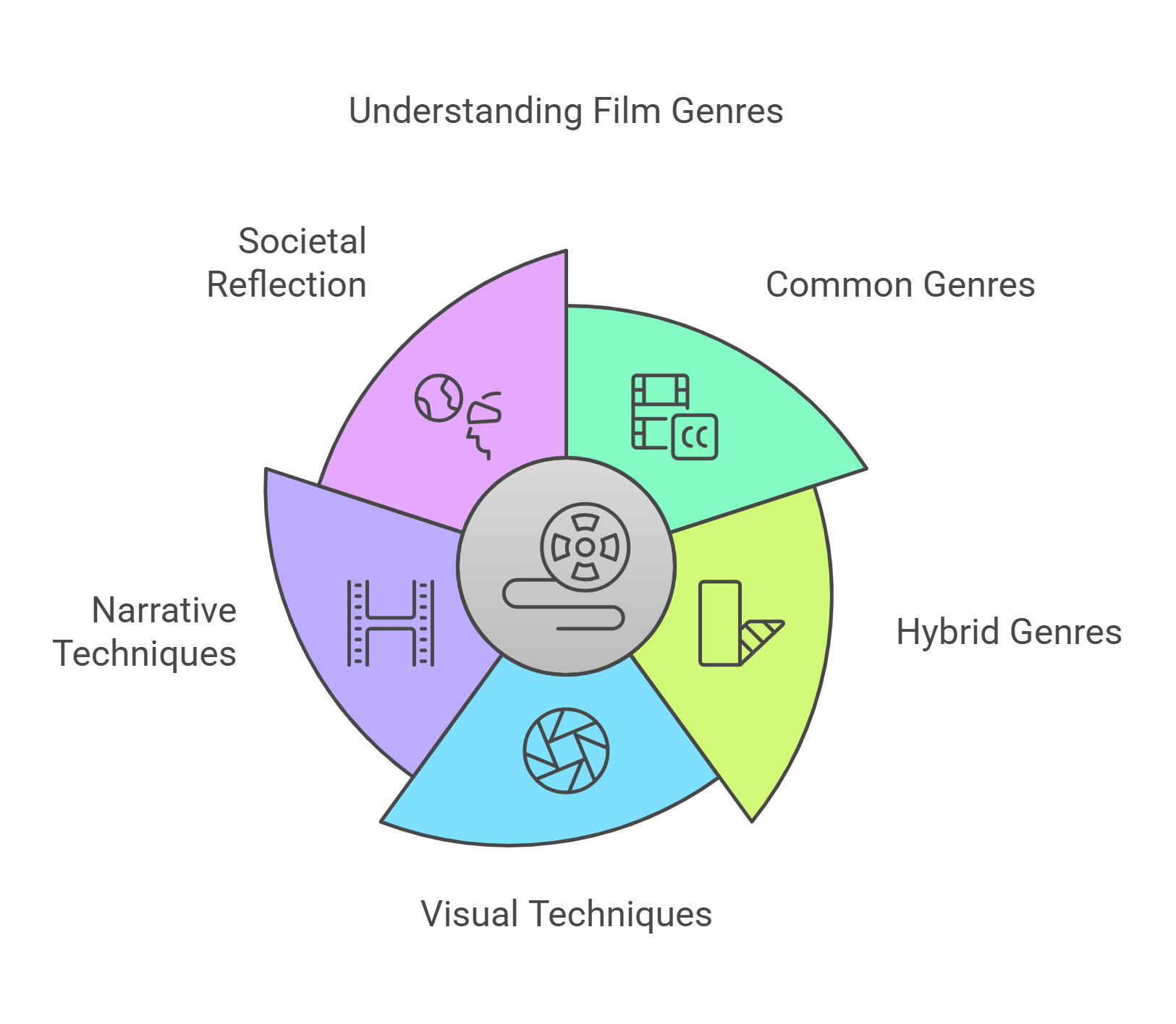
5. Film Criticism
Film criticism evaluates and interprets movies, offering insights into their artistic, cultural, and societal significance. Critics analyze elements like direction, acting, and themes to determine a film’s impact and relevance.
- Focuses on analyzing a film’s artistic and thematic qualities.
- Helps audiences understand a movie’s deeper meanings.
- Highlights cultural or historical influences on films.
- Can shape public opinion and industry trends.
- Encourages debates about art, creativity, and storytelling.
Explained Simply: Imagine someone explaining why your favorite movie is great or not. Film critics do this, helping you see details you might’ve missed.
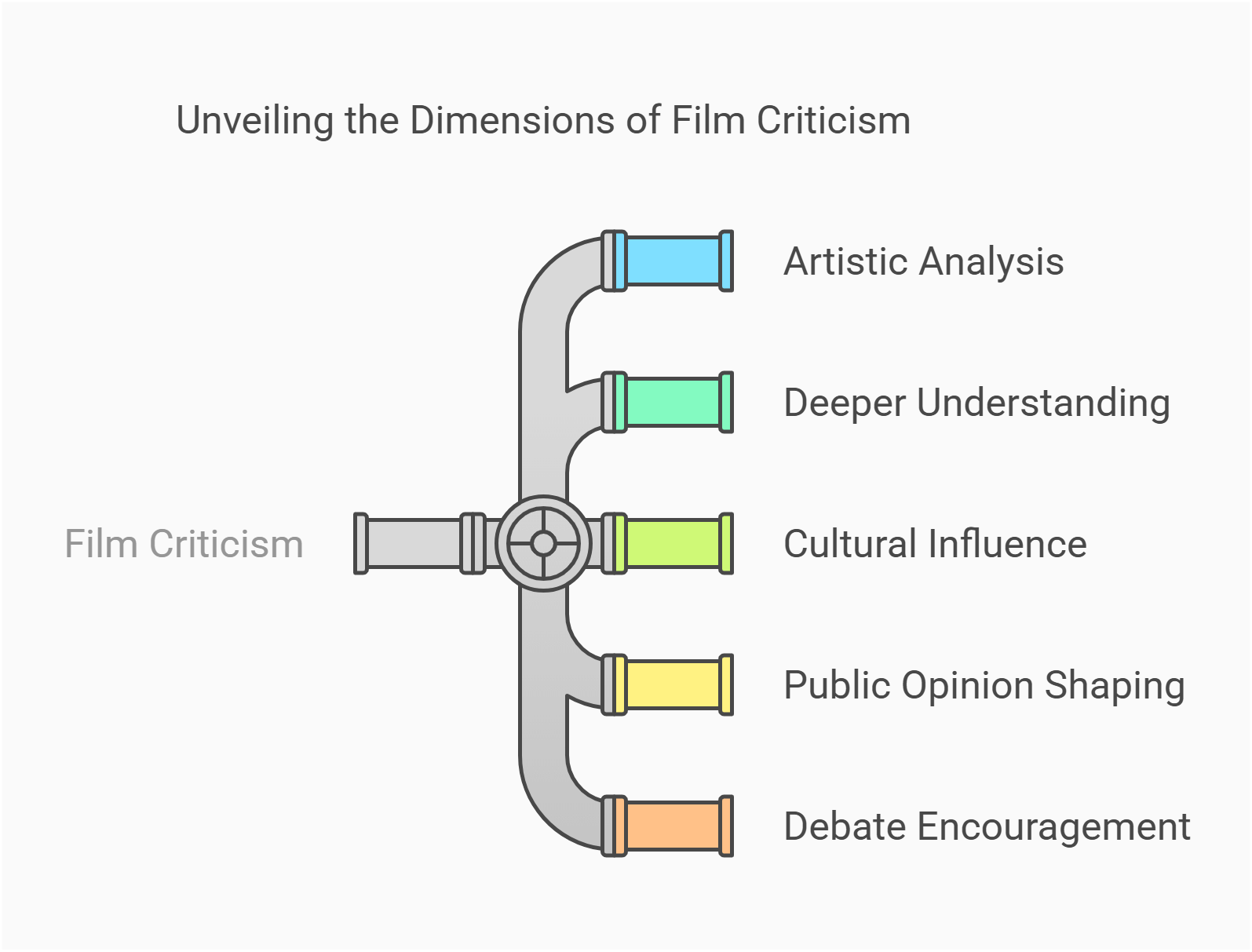
6. Cinematography
Cinematography is the art of capturing visual images in a film, using techniques like lighting, framing, and camera movement. It shapes the emotional and aesthetic experience of the audience.
- Focuses on lighting, framing, and camera angles.
- Enhances storytelling through visual composition.
- Plays a key role in creating mood and atmosphere.
- Examples: close-ups for intimacy, wide shots for scale.
- Central to understanding a film’s visual language.
Explained Simply: Cinematography is like taking amazing photos for a story, where each picture makes you feel something special.
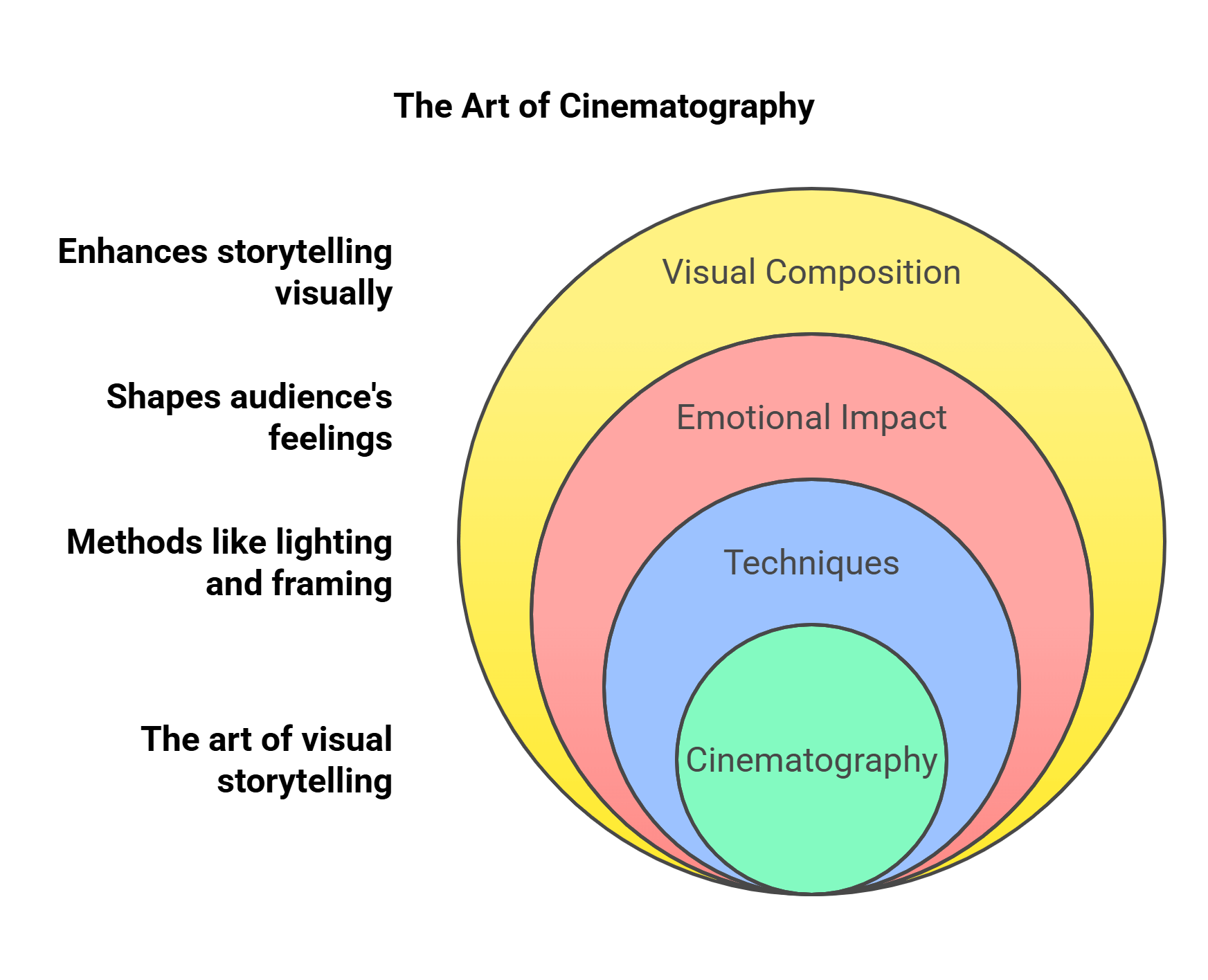
7. Screenwriting
Screenwriting involves crafting the script for a film, including dialogue, characters, and plot. A well-written screenplay forms the foundation for compelling storytelling in movies.
- Defines the plot, characters, and dialogue of a film.
- Shapes the emotional arc and themes of the story.
- Balances structure with creativity.
- Connects audience expectations with narrative innovation.
- Forms the blueprint for the filmmaking process.
Explained Simply: Screenwriting is like writing a storybook, but with instructions for how characters should talk and act in a movie.
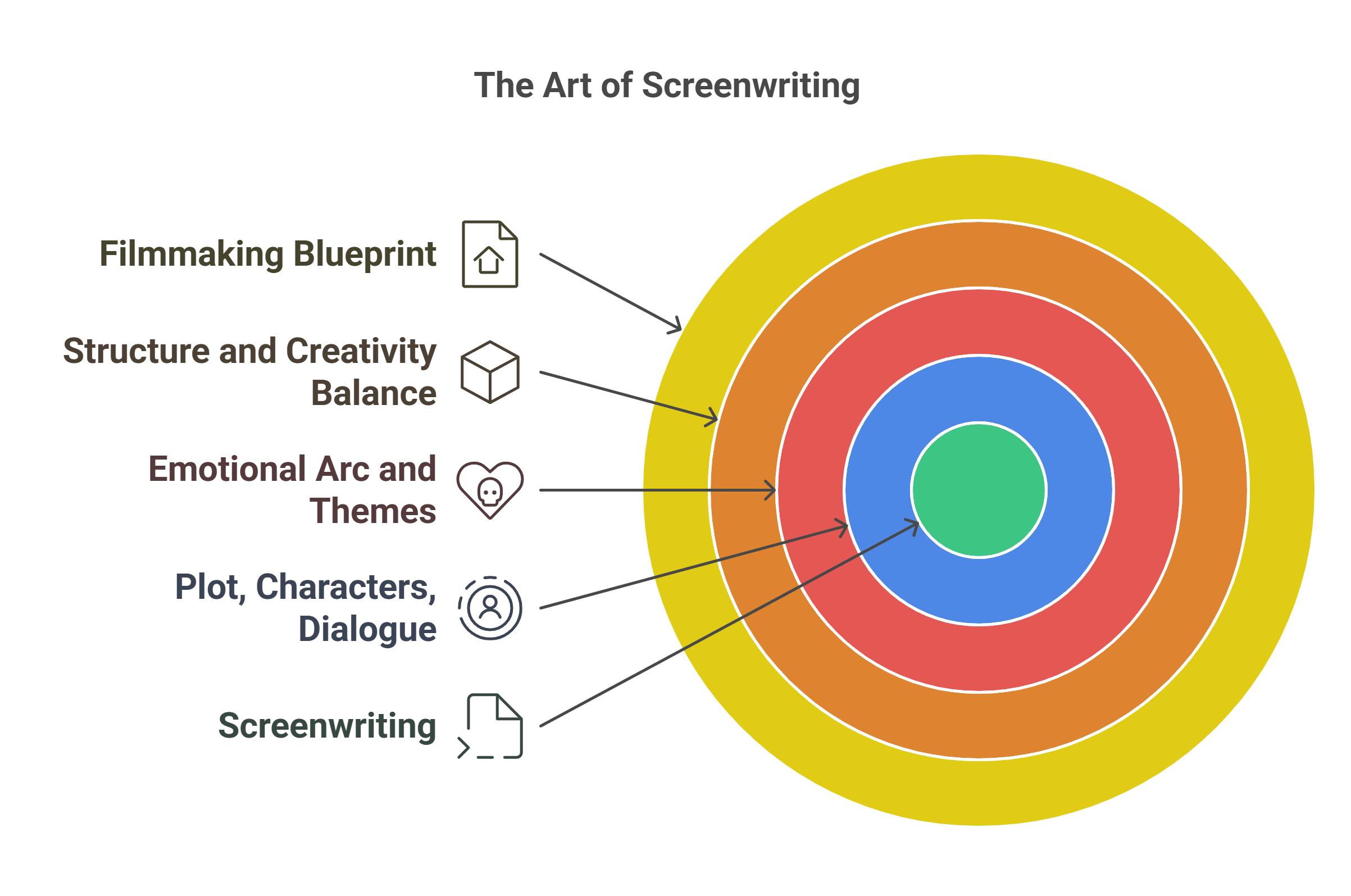
8. Film Production
Film production encompasses all stages of making a movie, from planning and financing to shooting and editing. It involves collaboration among directors, producers, actors, and crew members.
- Covers pre-production, production, and post-production stages.
- Involves budgeting, casting, and location scouting.
- Coordinates between creative and technical teams.
- Ensures the film aligns with its artistic vision.
- Central to understanding the filmmaking process.
Explained Simply: Making a movie is like planning a giant group project where everyone—actors, camera operators, and editors—works together to bring the story to life.
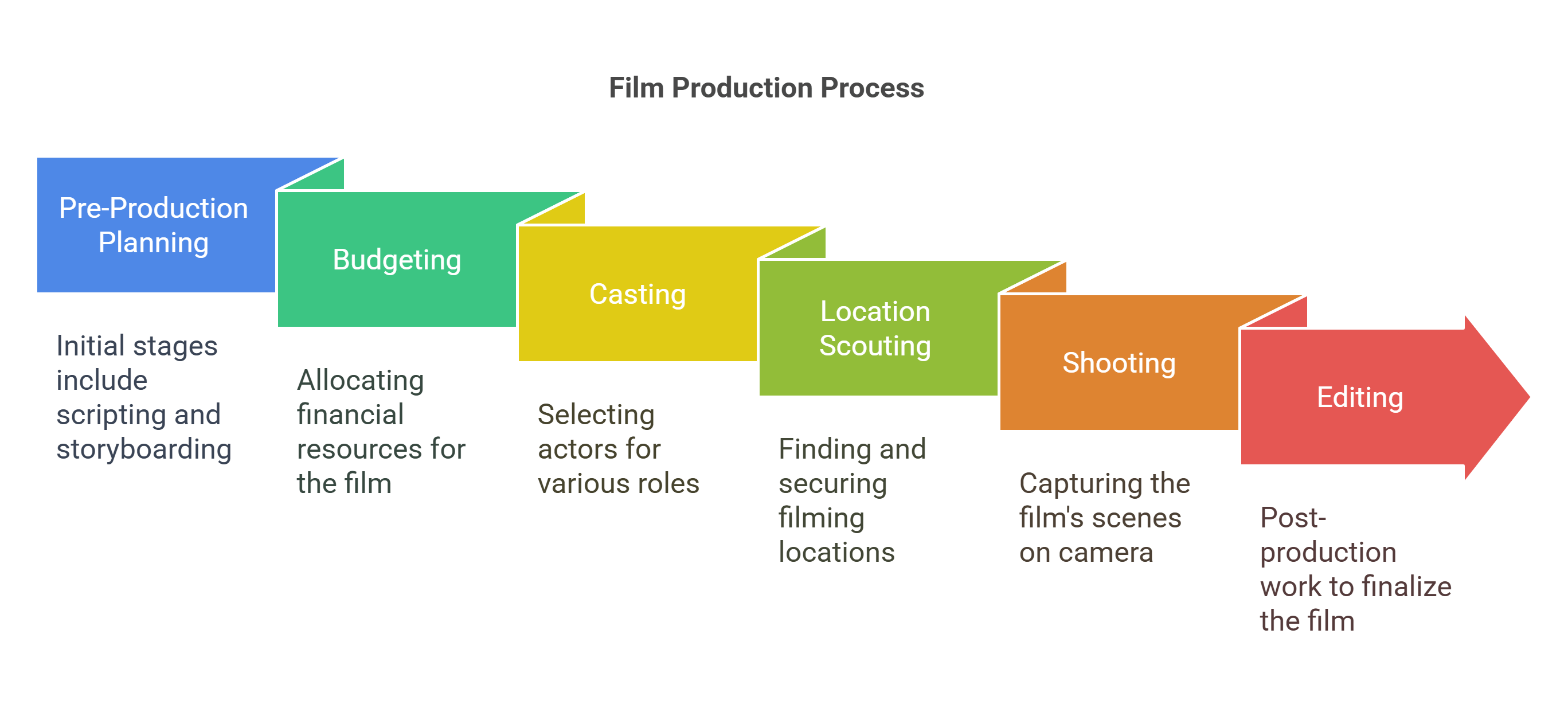
9. Film Editing
Film editing is the process of assembling shots and sequences to create a cohesive story. It determines the film’s pace, rhythm, and emotional impact, making it a key element of storytelling.
- Involves cutting and arranging scenes for narrative flow.
- Sets the film’s rhythm and pacing.
- Integrates visual effects, sound, and music.
- Balances continuity with creative transitions.
- Highlights pivotal moments for emotional resonance.
Explained Simply: Editing is like putting together a jigsaw puzzle where you decide the order of pieces to tell the best story.
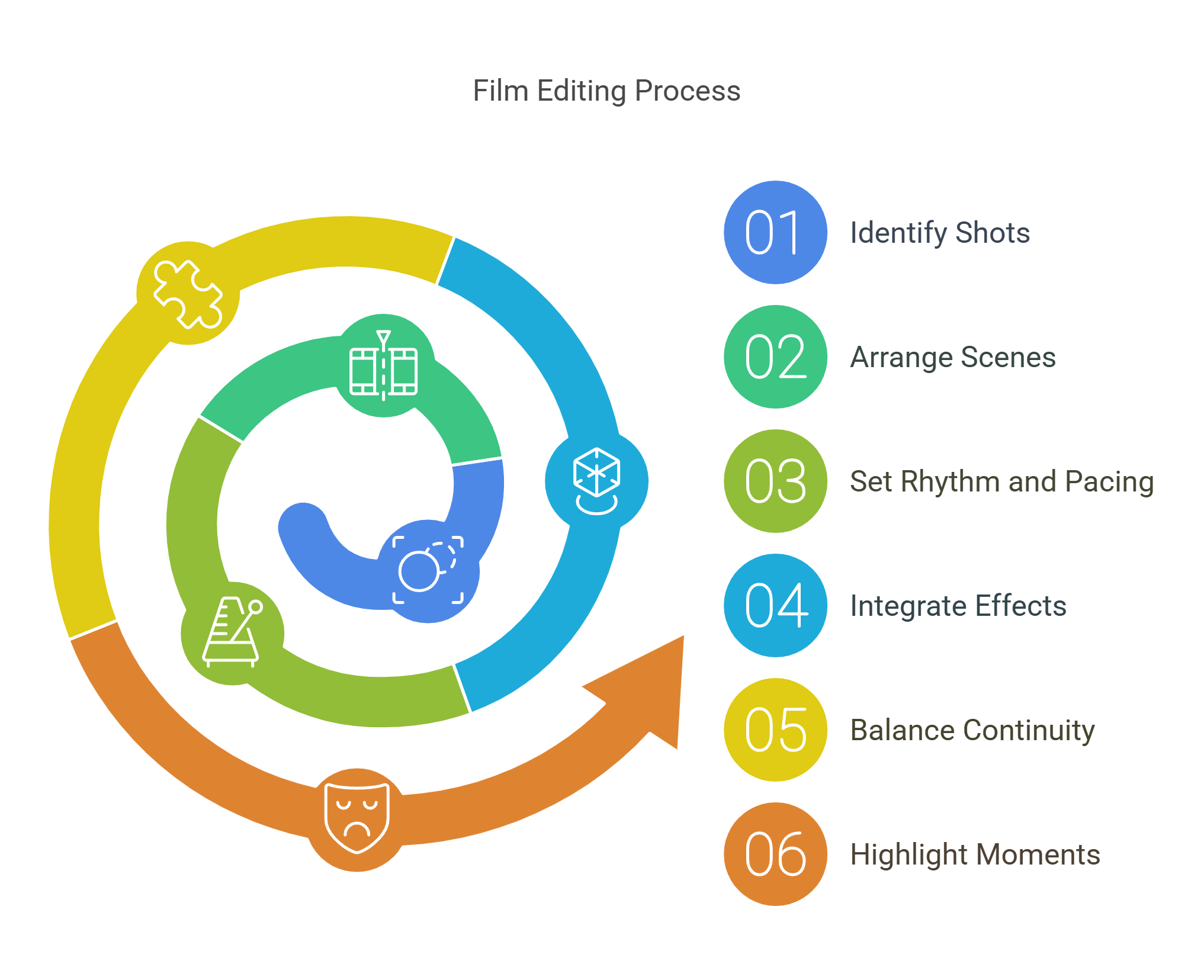
10. Film Festivals
Film festivals are events where filmmakers showcase their work to critics, industry professionals, and audiences. They often highlight artistic, independent, or experimental films that shape global cinema trends.
- Promotes independent and international cinema.
- Provides a platform for emerging filmmakers.
- Highlights cultural diversity in storytelling.
- Influences industry trends and award circuits.
- Examples: Cannes, Sundance, Berlin Film Festival.
Explained Simply: A film festival is like a big party where people watch movies from around the world and celebrate the best ones.
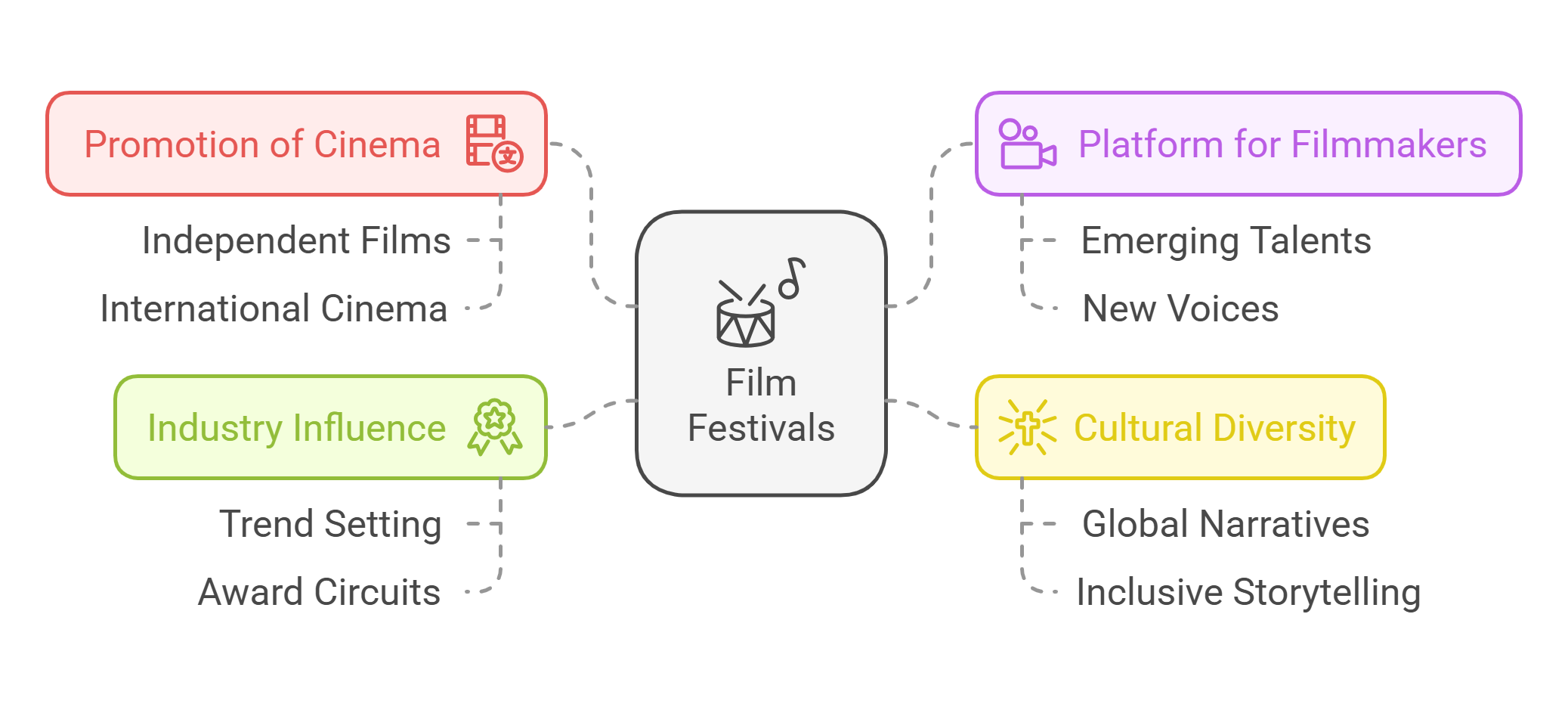
✨ Conclusion
Understanding Film Studies concepts not only broadens your perspective on storytelling but also sharpens your analytical skills for RC passages. By connecting the technical, artistic, and cultural aspects of filmmaking, these ideas provide a solid foundation for tackling texts that require critical evaluation. This knowledge enables you to engage deeply with complex arguments and uncover the layers of meaning in any narrative or critique—a skill essential for excelling in RC.

